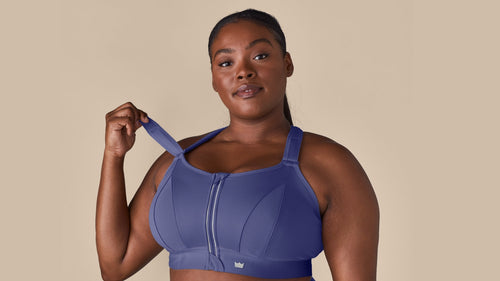Anniversary Sale 20% Off Shop Now
7 Great Tasting Vegetables You Thought Were Always Healthy
When it comes to healthy living and an active lifestyle, we're used to thinking that all veggies are good for us. But that's not always the case, for a wide range of reasons, some vegetables can do more harm than good. And unfortunately, some of the tastiest vegetables are on this list.
Here are 7 great tasting vegetables that aren't as healthy as you thought:
- Eggplant
- Peas
- Potatoes
- Bell Peppers
- Corn
- Broccoli
- Celery
This list isn't exactly helpful without additional context. Each vegetable on this list comes with a host of different reasons to cut it out of your diet, but it wouldn't be fair to say everything here is bad for you. Before we dig into each vegetable on the list, let's set the scene on why some vegetables may not be great for your health.
Why Are Some Vegetables Unhealthy to Eat?
Some vegetables can be unhealthy to eat depending on a variety of factors:
- Nutrition: Some vegetables may be high in carbohydrates, fat, or sugar which can lead to weight gain or interfere with other functions of the body, such as the kidneys, digestive tract, or thyroid gland.
- Preparation: Additionally, some vegetables may have added sauces or oils that increase their calorie content and make them less healthy. Or consumed raw can create harmful side effects.
- Preservation: Vegetables may also contain nitrates or other preservatives, think canned vegetables and frozen vegetables, which can be harmful if eaten in large amounts.
- Pesticides: Finally, some vegetables may have picked up pesticide residue from their growing environment, which can be unhealthy if eaten in large amounts.
With these factors in mind, let's look at the pros and cons of each vegetable, fruit, and legume on our list, and why they may not be the healthy food you thought they were.

Top 7 Vegetables You May Want to Reconsider
Since there is no common thread throughout all 7 veggies, these are in no particular order of best to worst. However, keep reading because there is one vegetable that's earned the dubious distinction of being generally the number one vegetable to avoid.
1. Eggplant - Absorbs More Calories, Sodium, and Fat
Eggplant is an interesting vegetable, well technically it's a fruit - either way, it has good intentions, but they don't always pan out.
On the one hand, it's low-calorie and an amazing source of fiber. But on the other, eggplants have a strange knack for absorbing far more calories, sodium, and fat around it than you'd expect - it's almost as if eggplant is daring you to eat too much.
And for some people, this food can lead to digestive issues. So if you're looking for a healthy option, maybe consider something else instead; eggplant may offer surprises that you weren't expecting.
What Are the Health Benefits of Eggplants?
We already hit the high points of eggplants - low calories and heaps of fiber. But there are other things to like about it as well, like how it's chocked full of vitamins, minerals, and antioxidants.
Eating eggplant can also help keep your blood sugar levels balanced and support digestive health. The latter is just a fine line, as with any food heavy in fiber.
In addition to this, regular consumption of eggplants may reduce inflammation, promote heart health, and even protect against certain types of cancer.
2. Peas - High in Carbs, High Sodium if Frozen
Eating peas (yes peas are legumes and not vegetables) can certainly have its benefits, however, there are certain things to consider before adding them to your diet. For instance, peas are super starchy, which means they lean on the higher end of carbs - so if you're on a mission to lose weight, this is probably not the right vegetable.
We all know the struggle of a busy life, this means we aren't taking the time to run in the backyard and grab peas - more likely we're grabbing a bag of frozen peas from the frozen food aisle. And that's where another big problem comes into play.
Frozen peas are packed with excess salt and preservatives which is not a good showing for high blood pressure or kidneys. But being frozen isn't the fault of peas, so we'll cut them a break on that part.
What Are the Health Benefits of Peas?
Peas do have some likable characteristics. They're high in fiber and contain a boatload of antioxidants, vitamins C and E, and zinc. This is helpful for the immune system and metabolism support.
And if you're looking for a way to flex your iron muscles, peas have plenty of it - not to mention folate, calcium, magnesium, copper, and more. All this makes them great for cardiovascular health.
So don't let the potential weight gain scare you away - just be mindful of your portion sizes.
3. Potatoes - High in Carbs
Ah yes, the potato, beloved by many and the cornerstone of a solid evening meal, albeit potentially unhealthy. And we know, it's technically a tuber - just keep reading. But you're not surprised it's on this list, are you? The potato is practically everywhere, from french fries to mashed potatoes to au gratin and more.
Since they're one of the most common staple foods around, it's worth noting that potatoes can be a diet saboteur.
They are heavy in complex carbs, which can throw off your blood sugar and weight-loss goals. But perhaps the biggest crime to your health at the hands of potatoes is how most people prepare them.
Whether that's frying them, or dousing them in butter and sour cream, we rarely prep them in a way that's not sabotaging our bodies.
What Are the Health Benefits of Potatoes?
Despite all these drawbacks, potatoes do have their benefits. For one thing, they're packed with vitamin C and minerals like iron, magnesium, phosphorus, zinc, and potassium. Vitamin C is an antioxidant, which can help protect against some diseases or reduce the risk of certain types of cancers.
It's unrealistic to cut them out of your life entirely, so if you're looking to take advantage of the health benefits of potatoes but reduce the drawbacks, try baking or roasting the with minimal oil and seasonings or steaming them.
4. Bell Peppers - Potential Inflammation Triggers
It's mostly good things to say about the most colorful fruit (yes fruits, and berries at that) but there is one downside you should know because it can wreak serious havoc on your health.
Bell peppers contain a compound called capsaicin, which can cause inflammation and irritation in some people. This is especially true for those dealing with gastrointestinal issues like IBS or Crohn's disease - capsaicin could trigger symptoms that would otherwise be dormant.
What Are the Health Benefits of Bell Peppers?
That being said, we could devote an entire week to talking about the good side of bell peppers. bell peppers certainly have their own set of positives.
They are rich in vitamins A and C, as well as carotenoids that give them vivid colors. This means they can help protect your vision and skin from oxidative damage. On top of that, bell peppers are known to be high in fiber which can keep your digestive system running smoothly.
So if you're looking for a way to get the benefits of bell peppers with minimal risk, try roasting or steaming them. This will reduce the amount of capsaicin that's released and minimize your chances of triggering any inflammation-related issues.
5. Sweet Corn - High in Sugar
Would you believe it took 5 items to get to the first technically accurate vegetable on the list? It's a good one too - corn is a staple of so many tasty cuisines, and certainly an important crop in the United States.
But the truth is, it can be hard to ignore the fact that corn isn't always healthy for us. It's high in sugar (sweet corn has more than 6 grams of sugar per serving!) so it can throw off your blood glucose levels when you overindulge.
The other downside is how most people acquire corn. Unless it's surrounded by a cob and wrapped in silk and a husk, you've probably gotten it from a can or frozen bag. This is where additives shine, which is bad news for your health in many ways.
Or if you do get a cob of corn, unless it's organic, it may be tainted with an insanely high amount of chemicals or come from GMOs.
What Are the Health Benefits of Corn?
The good news is that even with all these drawbacks, there are still plenty of health benefits to eating corn. It contains a good dose of vitamin C, and B vitamins, and minerals like magnesium, phosphorus, zinc, and iron.
Corn is also a good source of plant-based protein, as well as dietary fiber which can help you feel full throughout the day. The key to keeping corn a healthy part of your diet is to eat in moderation and buy organic.
6. Broccoli - Thyroid Issues and Bloating
You know the saying - "eat your broccoli" - so what's broccoli doing on the list? Well, the health benefits are numerous and we'll get to some of the highlights in just a second. But there is a downside to this superfood, and it's all about portions.
Under certain circumstances, consuming large amounts of broccoli can interfere with the body's ability to absorb iodine. This is because broccoli contains goitrogens, which can block the uptake of iodine in the thyroid gland.
In simple terms, this can mess up your thyroid gland, which has its own host of health risks.
Less severe, but still annoyingly painful, if you eat raw broccoli or any cruciferous greens (leafy greens) raw it can cause serious bloating and gas. That's because broccoli has a ton of fiber that's hard to break down as well as indigestible sugars.
What Are the Health Benefits of Broccoli?
If you can avoid going wild and eating broccoli like a caterpillar, then it has the potential to improve your health.
It's considered a superfood and contains vitamins A, C, and K as well as calcium, magnesium, and several more nutrients. Broccoli also boasts some powerful antioxidants, protein, and as you know, fiber - just don't overdo it, and look above if you need a reminder as to why.
So the moral of eating broccoli is to limit your portions and remember they shouldn't be eaten raw- steam the stuff at least.
7. Celery - High Insoluble Fiber and Pesticide
We hate to be the bearers of bad news, but if you've ever heard that celery is a negative calories food, it's just a myth. But that's not why we're here. You know that celery is basically like eating a straw full of water, but there are some good and bad things to this stalk vegetable.
The biggest health gripe is its high concentration of insoluble fiber. This type of fiber is great for bulk, but it doesn't break down as easily as soluble fiber - this can lead to a lot of gas and bloating.
Now the next part is by no means the fault of celery, but unless you're eating organic celery, you're most likely eating the vegetable with the most pesticides in the US.
The Environmental Working Group (EWG) has celery at the top of its Dirty Dozen list because of how many pesticides are found in it. Testing was conducted to find the concentration and presence of pesticides in vegetables.
They found that 95% of celery contains at least one pesticide, 85% contains more than one type of chemical - and what's worse is they found a total of 67 different types of pesticides, where the average sample contained nearly 4 types of pesticides.
So if you need your celery fix, do your body a favor and go organic.
What Are the Health Benefits of Celery?
Despite getting a bad wrap as having no nutritional value, there are some benefits to celery.
It's an excellent source of antioxidants, like flavonoids and vitamin C. It also contains vitamins A, and K, as well as minerals like calcium, magnesium, and potassium.
And in moderate portions, the fiber found in celery can be beneficial to your health - just make sure you get the organic variety.
We've covered a lot of ground already, hitting vegetables and fruits and legumes that everyone thinks are vegetables along the way. But we're sure one question remains. What is the #1 vegetable to keep out of your diet?
What Is the Number 1 Vegetable To Avoid for Weight Loss?
Sweet corn is the worst vegetable to consume if trying to lose weight, followed by peas, and then potatoes. While corn contains fewer calories than potatoes, it contains higher amounts of sugar and carbohydrates, which run counter to losing weight.
While sweet corn earned the distinction of worst vegetable to eat if you're trying to lose weight, all three are bad options for weight loss, according to the Harvard School of Public Health.
They ran an extensive study to prove these starch-heavy vegetables (legume and tuber as well) are linked to weight gain compared to non-starchy vegetables.
But if you're following any of our top 7, you also know there are other reasons to at least eat these vegetables in moderation.

Top 3 Vegetables You Should Eat for Weight Loss
We've covered the vegetables to avoid in certain scenarios, but what about the vegetables you should embrace?
If you're looking to stay fit and healthy while enjoying delicious meals, ditch the vegetables with disclaimers and opt for kale, spinach, or beets instead. These three are some of the healthiest vegetables around.
These power-packed veggies are low in calories, but they also provide essential vitamins and minerals that can help boost your immune system and keep you feeling good.

1. Kale - Nutrient-Rich, Immunity Boost
Kale is packed with essential vitamins, minerals, and antioxidants that can help boost your immune system and protect against disease. It also contains fiber which helps to improve digestion.
If you're new to these parts, welcome, and you should know about the overwhelming love we have for kale chips and veggie chips.
They're an amazing weight-loss replacement tool for potato chips, or at least a healthy alternative by comparison when prepared correctly, and we won't leave you empty-handed if you need a kale chips recipe. But however you consume Kale, like everything in life, moderation is key.
2. Spinach - Rich in Iron, High Antioxidants
Spinach is a nutrient-dense food that's packed with antioxidants and is rich in iron, vitamin A, and vitamin C. It also contains phytochemicals which can help to reduce inflammation as well as lower cholesterol levels.
It's an excellent addition to any salad or sandwich, but if you're looking for something different, try wilting it with garlic and olive oil for a delicious meal.
3. Beets - High Fiber, Feel the Pump
Like kale, beets are our other true vegetable (root) love. At a top level, they're an excellent source of Vitamin C, folate, potassium, dietary fiber, magnesium... and so on. The accolades of beets make it a well-rounded root to add to your life. But we're particularly fond of them for pre-workout reasons.
Beets are high in nitrates, which helps to increase blood flow and oxygen delivery to the muscles - yes, it's also referred to as the pump. So if you have an intense gym session planned, be sure to add some beets (or beet juice) into your healthy diet before hitting the weights.

Moderation for The Win!
If you decide to lean in on beets, spinach, or kale as your new go-to, or maybe you pull from our list of 7 vegetables with a dark side, either way, just remember that portion control is the key to everything. Even vegetables that can do so many positive things for your health can become detrimental if you go overboard.
If you're looking to take things up a notch and you're ready to hit the nutritional reset button, you may want to look into a cleanse diet. We've pulled a lot of helpful information together if you're looking to try a 3-day detox diet.
Wherever you go from here, we hope you continue to make great choices for your health - you deserve it!

























